Publikationen
-
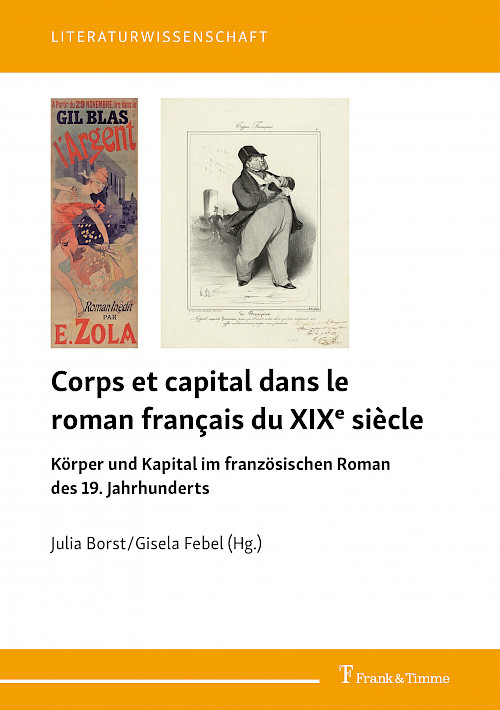 Corps et capital dans le roman français du XIXe siècle. Körper und Kapital im französischen Roman des 19. Jahrhunderts
Corps et capital dans le roman français du XIXe siècle. Körper und Kapital im französischen Roman des 19. JahrhundertsDer lebendige Körper und das kapitalistische Denken der modernen Ökonomie scheinen unvereinbare Gegenstände zu sein. Dennoch sind ihre Geschichte und Wahrnehmung spätestens seit der Zeit der Industrialisierung und Kapitalisierung im 19. Jahrhundert untrennbar miteinander verbunden. Unser Band betrachtet diese verflochtene Geschichte und die verschiedenen Widersprüche, die sich daraus entwickeln.
Seit Pierre Bourdieu wissen wir, dass der Körper ein inkorporiertes kulturelles und soziales Kapital darstellt. Er ist eine Ware und ein Produktionsmittel, ein Zeichen der Zugehörigkeit zu einer sozialen Klasse, ein Ort, an dem Geschlechter- und Machtverhältnisse ausgehandelt werden oder ein Vorwand für soziale Ausgrenzung und Rassismus. Der Körper ist Gegenstand von Bestrafungen, Sanktionen und sozialer Kontrolle, Träger von Affekten, Obsessionen und Krankheiten sowie Ort der Rebellion und des Widerstands. All das erzählen die Romane des 19. Jahrhunderts, die in den Beiträgen dieses Bandes analysiert werden. Aus der Perspektive der aktuellen Body Studies schlagen wir eine neue Lesart der großen Geschichten von Balzac bis Zola über Mirbeau, Maupassant, Louise Michel, Georges Sand, Rachilde, Eugène Sue und Huysmans vor, um anhand ihrer Texte zu zeigen, wie die Bilder vom Körper und die Politik des Kapitals miteinander verflochten sind und so einen zentralen Teil der Vorstellungswelt und des Gedächtnisses der französischen (wie auch der nördlichen/westlichen) Gesellschaft des 19. Jahrhunderts bildet.
-
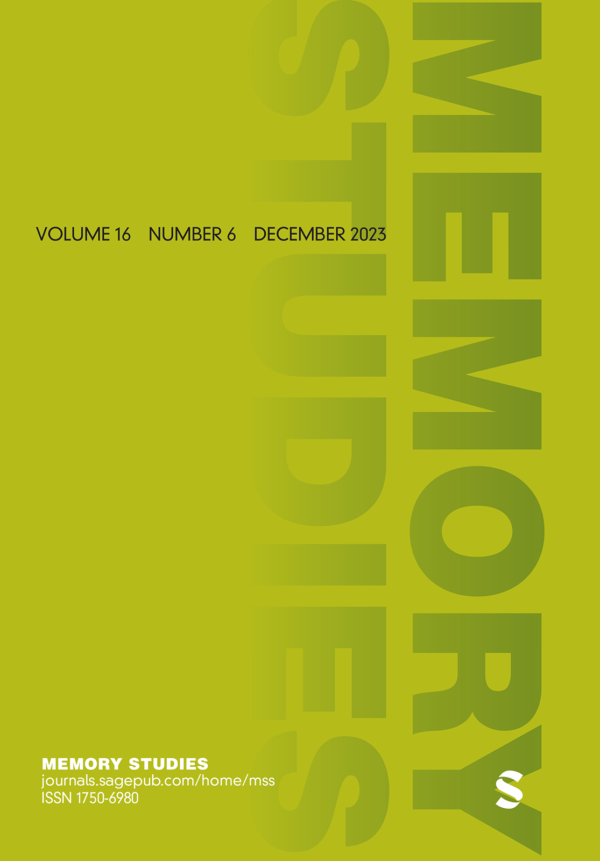 Why Collective Memory can never be Pluriversal. A Case for Contradiction and Abolitionist Thinking in Memory Studies
Why Collective Memory can never be Pluriversal. A Case for Contradiction and Abolitionist Thinking in Memory StudiesBringing together memory studies with the emerging field of contradiction studies, in this article, I suggest the need for an alternative way of thinking about collective memory by juxtaposing the ideal of wholeness that necessarily underlies any group’s identity with that of the inevitable contradiction of the plurivers. I discuss the power of the Western narrative order in regard to the Haitian Revolution and examples of mnemonic disharmony in contemporary Germany and seek to illuminate the epistemic violence constitutive of this narrative order. The article therefore interrogates memory study’s epistemological foundation and the practices in which these underpinnings result. The aim is to highlight the potential of contradiction in an attempt to pluriversify responses to the past as well as future visions for the worlds we live in. Special attention is paid to the question of what it is we hope for when attempting to (scholarly) contribute to making collective memory more inclusive, and where the limitations of this might lie. The purpose of my contribution, then, is to explore the tacit imperative of harmony that often remains unchallenged in memory studies, and to propose a shift in focus, from the ways in which memory might help us understand (e.g., current clashes of identities), toward a research agenda that is considerate of its own entanglements with power, yet, at the same time, lives up to its potential to contribute to transformation.
-
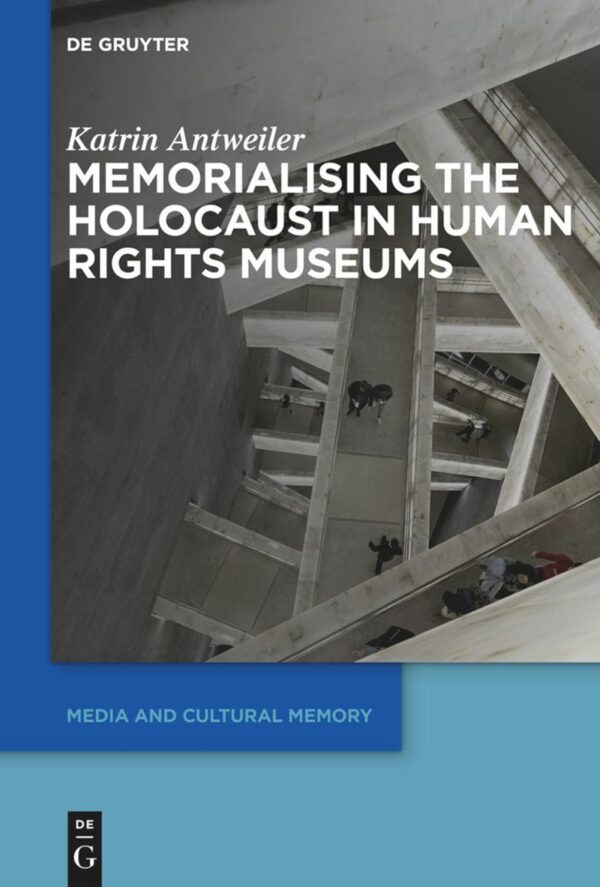 Memorialising the Holocaust in Human Rights Museums
Memorialising the Holocaust in Human Rights MuseumsThis book provides an analysis of the forms and functions of Holocaust memorialisation in human rights museums by asking about the impact of global memory politics on how we imagine the present and the future. It compares three human rights museums and their respective emplotment of the Holocaust and seeks to illuminate how, in this specific setting, memory politics simultaneously function as future politics because they delineate a normative ideal of the citizen-subject, its set of values and aspirations for the future: that of the historically aware human rights advocate. More than an ethical practice, engaging with the Holocaust is used as a means of asserting one’s standing on „the right side of history“; the memorialisation of the Holocaust has thus become a means of governmentality, a way of governing contemporary citizen-subjects. The linking of public memory of the Holocaust with the human rights project is often presented as highly beneficial for all members of what is often called the „global community“. Yet this book argues that this specific constellation of memory also has the ability to function as an exercise of power, and thus runs the risk of reinforcing structural oppression. With its novel theoretical approach this book not only contributes to Memory Studies but also connects Holocaust memory to Studies of Global Governmentality and the debate on decolonising memory politics.
-
 Als Wien zum Zentrum des tschechoslowakischen Dissens‘ wurde
Als Wien zum Zentrum des tschechoslowakischen Dissens‘ wurdeVeröffentlichung in der Reihe „Archivale des Monats“ der Forschungsstelle Osteuropa Bremen. Als Wien zum Zentrum des tschechoslowakischen Dissens‘ wurde. Bremen: Forschungsstelle Osteuropa. www.forschungsstelle.uni-bremen.de
-
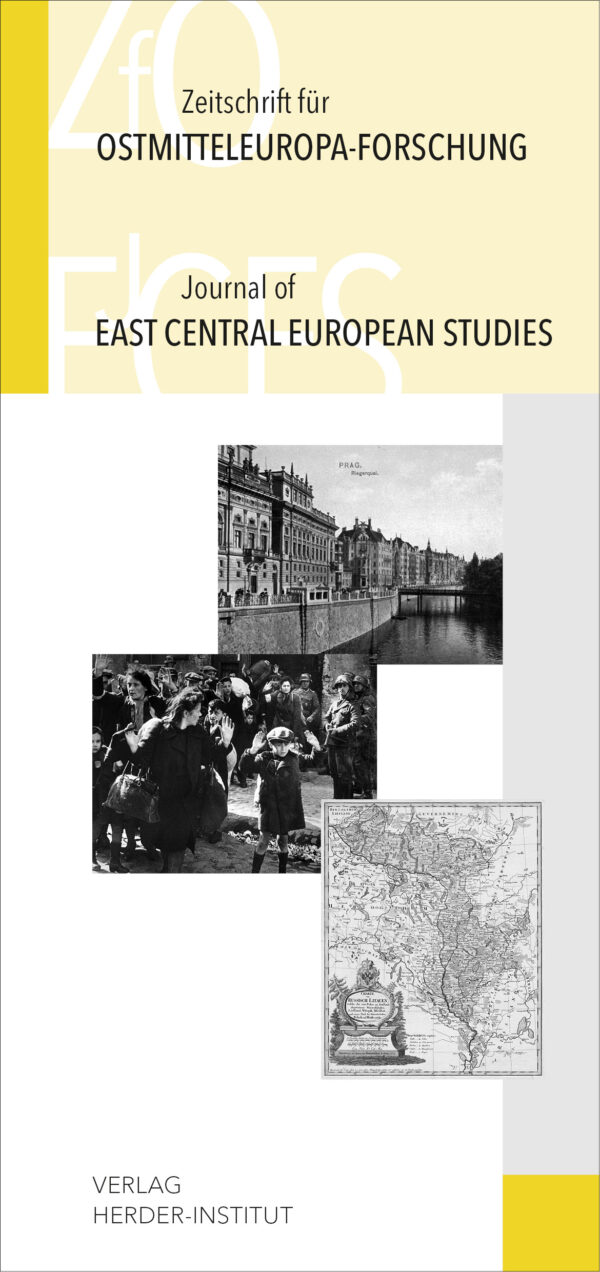 Rezension: Nationsbildung und Außenpolitik im Osten Europas
Rezension: Nationsbildung und Außenpolitik im Osten EuropasRezension des Sammelbandes Nationsbildung und Außenpolitik im Osten Europas. Nationsbildungsprozesse, Konstruktionen nationaler Identität und außenpolitische Positionierungen im 20. und 21. Jahrhundert (Hrsg. Bianka Pietrow-Ennker).
-
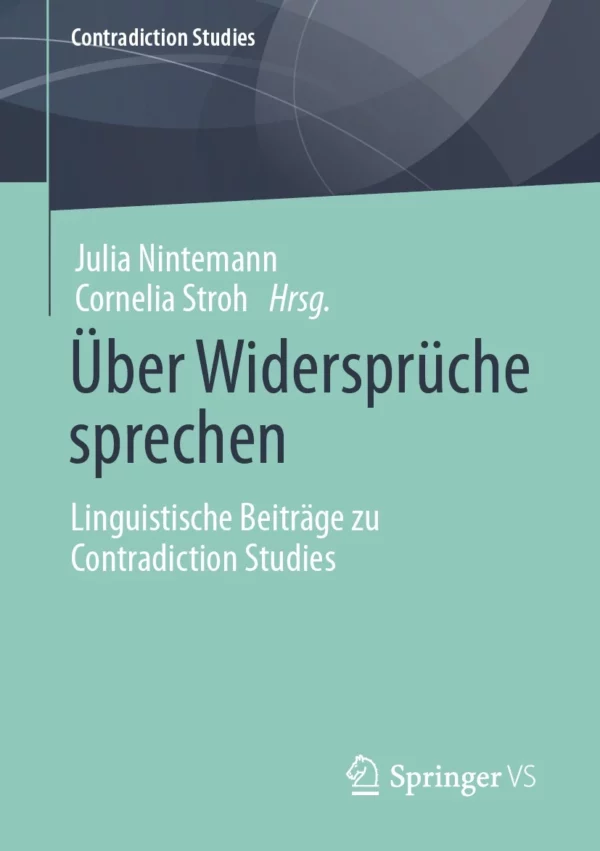 Über Widersprüche sprechen. Linguistische Beiträge zu Contradiction Studies
Über Widersprüche sprechen. Linguistische Beiträge zu Contradiction StudiesDer Fokus des Bandes liegt auf Widerspruch als Gegenstandsbereich, unter den sprachliche Ausdrucksformen von Entgegensetzung, Paradoxie, Lüge und Einspruch ebenso fallen wie linguistische Methoden des Umgangs mit Widerspruch und Widersprüchlichkeiten in der sprachwissenschaftlichen Disziplinengeschichte.
-
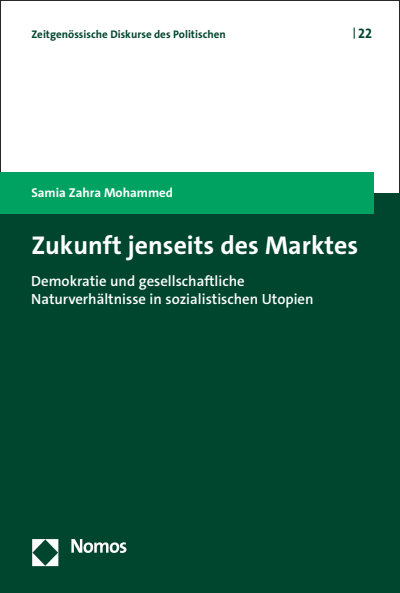 Zukunft jenseits des Marktes. Demokratie und gesellschaftliche Naturverhältnisse in sozialistischen Utopien
Zukunft jenseits des Marktes. Demokratie und gesellschaftliche Naturverhältnisse in sozialistischen UtopienDie Krisenhaftigkeit demokratischer Ordnung und gesellschaftlicher Naturverhältnisse im Zeitalter des Kapitalozäns belebt Debatten um Wirtschaftsmodelle jenseits kapitalistischer Marktwirtschaft gegenwärtig wieder.